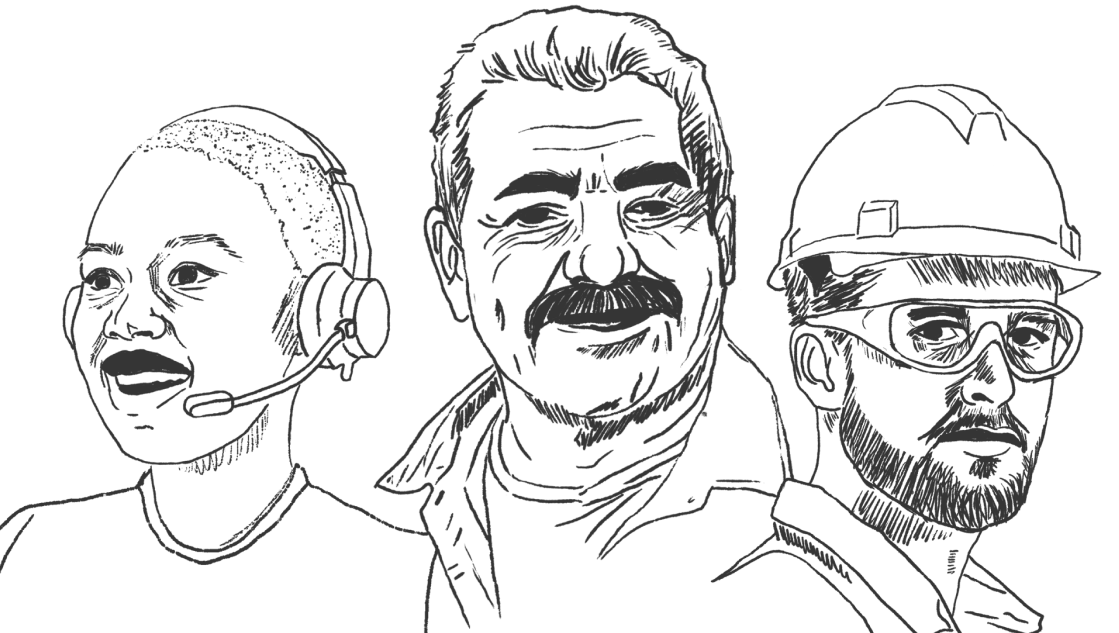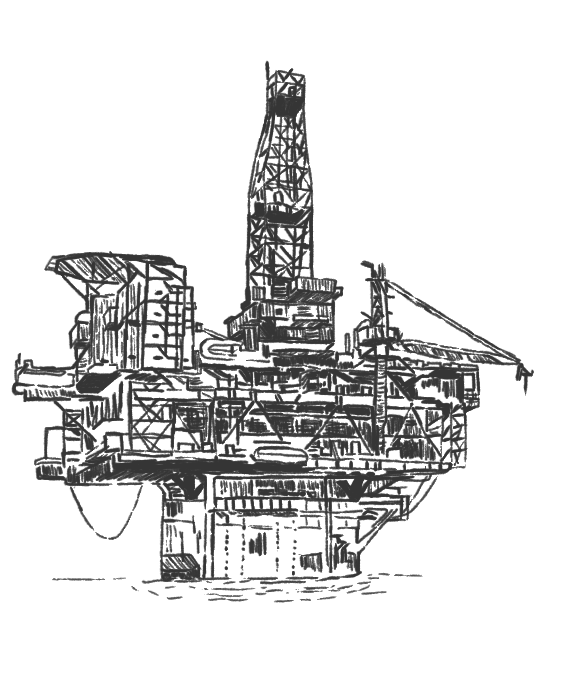How Negligence Leads to Oilfield Accidents in Katy and How We Prove It
Oilfields power Texas, and Katy sits near the heart of the energy corridor. With numerous drilling sites, contractors, equipment operators, and pipeline projects in and around the region, oilfield work is a significant economic driver. But it’s also among the most dangerous jobs in Texas.
When an oilfield accident happens, it’s rarely “just an accident.” More often than not, it’s the result of negligence, such as someone cutting corners, skipping safety protocols, or putting profit before people. At A2X, we focus on getting injured workers the answers and compensation they deserve by uncovering the truth about what really caused the incident.
What Is Negligence and Why Does It Matter?
Negligence is the failure to exercise reasonable care under the circumstances. In oilfield injury cases, it’s often the difference between a life-altering injury and a preventable one.
Some examples of negligence in oilfield settings include:
- Failing to provide proper safety gear or training
- Ignoring equipment maintenance schedules
- Forcing workers to operate in unsafe conditions
- Violating OSHA regulations
- Supervisors turning a blind eye to obvious hazards
In legal terms, proving negligence means showing that:
- The other party owed you a duty of care.
- They breached that duty;
- That breach caused your injury.
- You suffered damages (physical, financial, or emotional).
Negligence is the core of most oilfield injury claims, but proving it is rarely simple.
Common Injuries in Oilfield Accidents
Oilfield work is one of the most hazardous labor in Texas, and the injuries that result from accidents on these sites are often catastrophic. Oilfield injuries tend to be severe, complex, and life-altering, and they usually require long-term or even lifelong medical care.
Some of the most common oilfield injuries we see in Katy and across Texas include:
Burns and Explosions
With flammable gases, high-pressure systems, and volatile chemicals in play, oilfield explosions can cause second- and third-degree burns, disfigurement, and internal injuries. These incidents are often linked to faulty equipment, improper handling of hazardous materials, or safety protocol violations.
Traumatic Brain Injuries (TBI)
Falling equipment, explosions, and heavy machinery accidents frequently result in head injuries. TBIs can range from concussions to severe brain damage, leading to cognitive impairments, memory loss, and permanent disability.
Spinal Cord Injuries
Falls from elevated rigs, heavy object impacts, or crushing incidents can cause spinal trauma, potentially resulting in partial or complete paralysis. These injuries often require expensive surgical interventions and long-term rehabilitation.
Fractures and Crush Injuries
High-impact accidents involving drilling equipment, rig collapse, or vehicle collisions on-site can break bones or crush limbs. In the worst cases, these lead to amputations or permanent mobility limitations.
Eye and Hearing Damage
Improper eye protection or exposure to explosive noise levels can result in partial or complete vision or hearing loss, especially when PPE requirements are ignored or equipment is defective.
Mental and Emotional Trauma
While physical injuries are apparent, oilfield workers often suffer from invisible wounds too. Post-traumatic stress disorder (PTSD), anxiety, and depression are common after serious accidents, particularly when coworkers are injured or killed.
Oilfield injuries don’t just take a toll on your body; they impact your ability to earn a living, care for your family, and live a life free from constant pain or limitation. At A2X, we factor in the full scope of your losses, including long-term care, emotional trauma, and future lost earnings, when we build your case.
How Oilfield Accident Cases Differ from Other Personal Injury Cases
Oilfield injuries are not like typical workplace accidents or car crashes. They involve:
- Multiple layers of liability (contractors, subcontractors, site owners, equipment manufacturers)
- Severe and often permanent injuries that require long-term medical care and rehabilitation
- Extensive federal and state safety regulations, including strict oversight by the Occupational Safety and Health Administration (OSHA)
- Corporate defense teams are trained to protect the company’s bottom line and shift blame wherever possible.
OSHA sets specific safety standards for oil and gas operations, from equipment maintenance and hazard communication to fall protection and confined space entry. When these standards are ignored or violated, it’s often a key sign of negligence. Yet many companies try to cover up non-compliance before it comes to light.
Many injured workers believe they can only file a workers’ compensation claim. Still, in many cases, third parties (outside of your employer) can also be held accountable through a personal injury lawsuit. That’s where A2X comes in.
Key Factors in Oilfield Injury Claims
When building your case, we look at factors such as:
- OSHA Violations: Was the employer or third party non-compliant with federal safety laws?
- Equipment Failures: Was the machinery faulty, outdated, or improperly maintained?
- Training Records: Were workers trained adequately for their assigned tasks?
- Shift Schedules: Was fatigue a factor? Were hours being manipulated to avoid overtime or compliance?
- Incident Reports & Witness Testimony: What do coworkers say happened?
- Surveillance or Site Footage: Does video evidence exist of the hazardous conditions?
But one factor unique to Texas can dramatically shape your legal options, and that’s the state’s non-subscriber status.
Unlike most states, Texas does not require private employers to carry workers’ compensation insurance. Companies that opt out are known as non-subscribers, and while they often claim to have their own “injury benefit plans,” these are typically designed to protect the company, not the worker.
If your oilfield employer is a non-subscriber and their negligence caused your injury, you can sue them directly in civil court, something you usually can’t do under traditional workers’ comp systems.
Non-subscriber cases allow for broader compensation, including:
- Full lost wages (not just a percentage)
- Pain and suffering
- Mental anguish
- Punitive damages in cases of gross negligence
However, these cases also require strong evidence and a skilled legal strategy. That’s where A2X comes in to hold non-subscribing companies accountable and make sure you’re not left paying the price for their cost-cutting decisions.
What A2X Legal Does to Prove Negligence
At A2X, we’re relentless when it comes to building strong cases for oilfield injury victims in Katy and the surrounding areas. Our team doesn’t stop at surface-level evidence. We:
- Send immediate preservation letters to prevent key evidence from being destroyed
- Interview witnesses and coworkers discreetly and thoroughly
- Work with oilfield safety experts to reconstruct what went wrong
- Subpoena training logs, maintenance records, and internal communications
- Consult medical and occupational experts to determine the full impact of your injuries
- Negotiate directly with corporate insurers or take them to court if necessary
- We know the tactics these companies use to delay, deny, and deflect, and we don’t fall for them.
How Long Do You Have to File?
Under Texas law, you generally have two years from the date of the accident to file a personal injury lawsuit , but in oilfield cases, it’s critical to act far sooner.
Evidence on job sites can be lost, destroyed, or conveniently “misplaced.” Witnesses move on to new projects. Companies close ranks fast. The sooner you speak with our team, the better your chances of protecting your rights.
Don’t Let Negligence Go Unchallenged
Oilfield work in Katy is challenging, honest labor, and when someone’s carelessness or corporate greed turns that into a life-altering injury, they should be held accountable. At A2X Legal, we’ve built our reputation by doing precisely that.
If you or someone you love has been injured in an oilfield accident, don’t wait. Schedule a consultation with A2X today and find out what your claim may really be worth. We’ll explain your legal options, help you understand who's truly responsible, and begin building a case that puts your future first.
You’ve done your job. Let us do ours and fight for the justice you deserve.
Request a Consultation
Other Practice Areas





